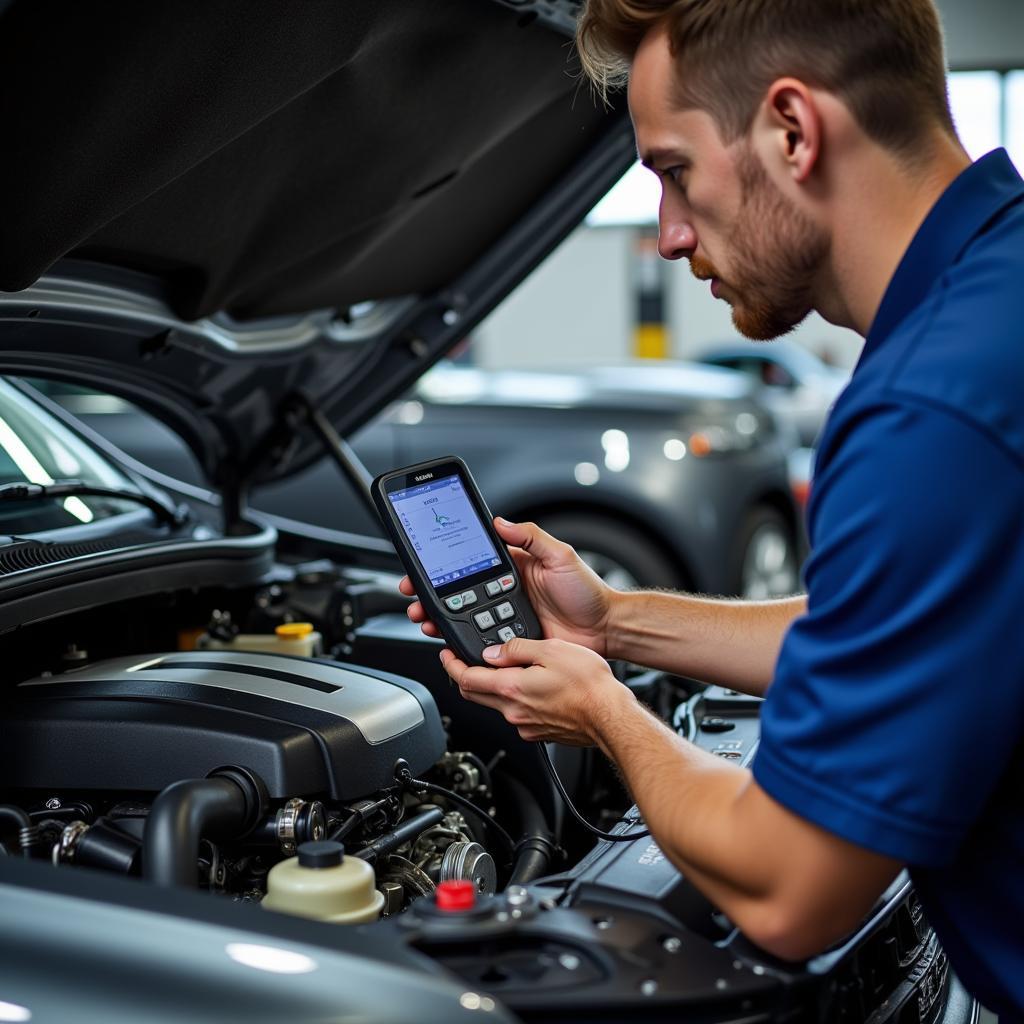Maintaining your car and keeping it running smoothly is a priority for any car owner. A common question that often arises is, “how many kilometers can a car be maintained without repairs?” Unfortunately, there’s no single magic number. The lifespan of your car’s components and its overall health depend on a multitude of factors, making it difficult to give a definitive answer. However, understanding these factors can help you maximize your car’s longevity and minimize unexpected repair costs.
Factors Influencing a Car’s Maintenance Needs
Several key factors play a significant role in determining how long your car can go without needing repairs. These include:
-
Make and Model: Just like humans, some cars are inherently more robust than others. The build quality, design, and materials used vary significantly between manufacturers and even between models of the same make. A car known for its reliability will likely require fewer repairs than one with a history of issues.
-
Driving Habits: Aggressive driving, frequent short trips, and driving in harsh conditions can significantly accelerate wear and tear on your vehicle. Gentle acceleration, smooth braking, and allowing the engine to warm up properly can extend the life of your car’s components.
-
Maintenance Schedule: Regular maintenance is the single most important factor in preventing major repairs. Following the manufacturer’s recommended maintenance schedule for oil changes, filter replacements, and other routine checks can significantly reduce the risk of costly breakdowns.
-
Environment: Harsh weather conditions, extreme temperatures, and exposure to road salt can all take a toll on your car. Storing your car in a garage and washing it regularly can help mitigate the effects of the environment.
-
Quality of Parts: Using high-quality parts for repairs and replacements can significantly impact the longevity of your car. While cheaper parts may be tempting, they often don’t last as long and can lead to further problems down the road.
Understanding Preventative Maintenance
Preventative maintenance is your best defense against unexpected repairs. It involves regular inspections and servicing of your vehicle to identify and address potential issues before they become major problems. This can include:
-
Regular Oil Changes: Oil is the lifeblood of your engine. Regular oil changes help keep it clean and lubricated, preventing excessive wear and tear.
-
Tire Rotations and Balancing: Proper tire maintenance ensures even wear and tear, extending tire life and improving fuel efficiency.
-
Brake Inspections: Regular brake inspections are crucial for safety and can help prevent costly brake repairs down the line.
-
Fluid Checks: Regularly checking and topping off fluids like coolant, brake fluid, and power steering fluid can prevent damage to critical systems.
 Mechanic Inspecting Car Engine
Mechanic Inspecting Car Engine
How Many Kilometers Before My First Major Repair?
While it’s impossible to predict exactly when your car will need its first major repair, following the manufacturer’s recommended maintenance schedule is a good starting point. Many cars can easily go 100,000 kilometers or more without needing major repairs if they are well-maintained. However, neglecting regular maintenance can significantly shorten this lifespan.
Signs Your Car Needs Attention
Even with regular maintenance, it’s important to be aware of the signs that your car might need attention. These can include:
- Unusual noises
- Warning lights on the dashboard
- Changes in performance, such as decreased fuel efficiency or difficulty starting
If you notice any of these signs, it’s important to have your car inspected by a qualified mechanic as soon as possible.
Conclusion
So, how many kilometers can a car be maintained without repairs? The answer depends on various factors, but proactive maintenance is the key to extending your car’s life and avoiding expensive repairs. By following the manufacturer’s recommended maintenance schedule and being attentive to your car’s needs, you can keep your car running smoothly for many years to come.
FAQ
- What is the most important factor in preventing car repairs? Regular maintenance is the most crucial factor.
- How often should I change my car’s oil? Consult your owner’s manual for the manufacturer’s recommended oil change interval.
- What are some signs that my car needs repairs? Unusual noises, warning lights, and changes in performance can all indicate potential problems.
- How can I extend the life of my car’s tires? Regular tire rotations and balancing are essential for even wear and tear.
- Why is it important to use high-quality parts for repairs? High-quality parts typically last longer and perform better than cheaper alternatives.
- What should I do if a warning light comes on my dashboard? Have your car inspected by a qualified mechanic as soon as possible.
- How can driving habits affect my car’s maintenance needs? Aggressive driving and frequent short trips can accelerate wear and tear.
For further assistance, please contact us via WhatsApp: +1(641)206-8880, Email: [email protected]. We have a 24/7 customer support team.

Leave a Reply